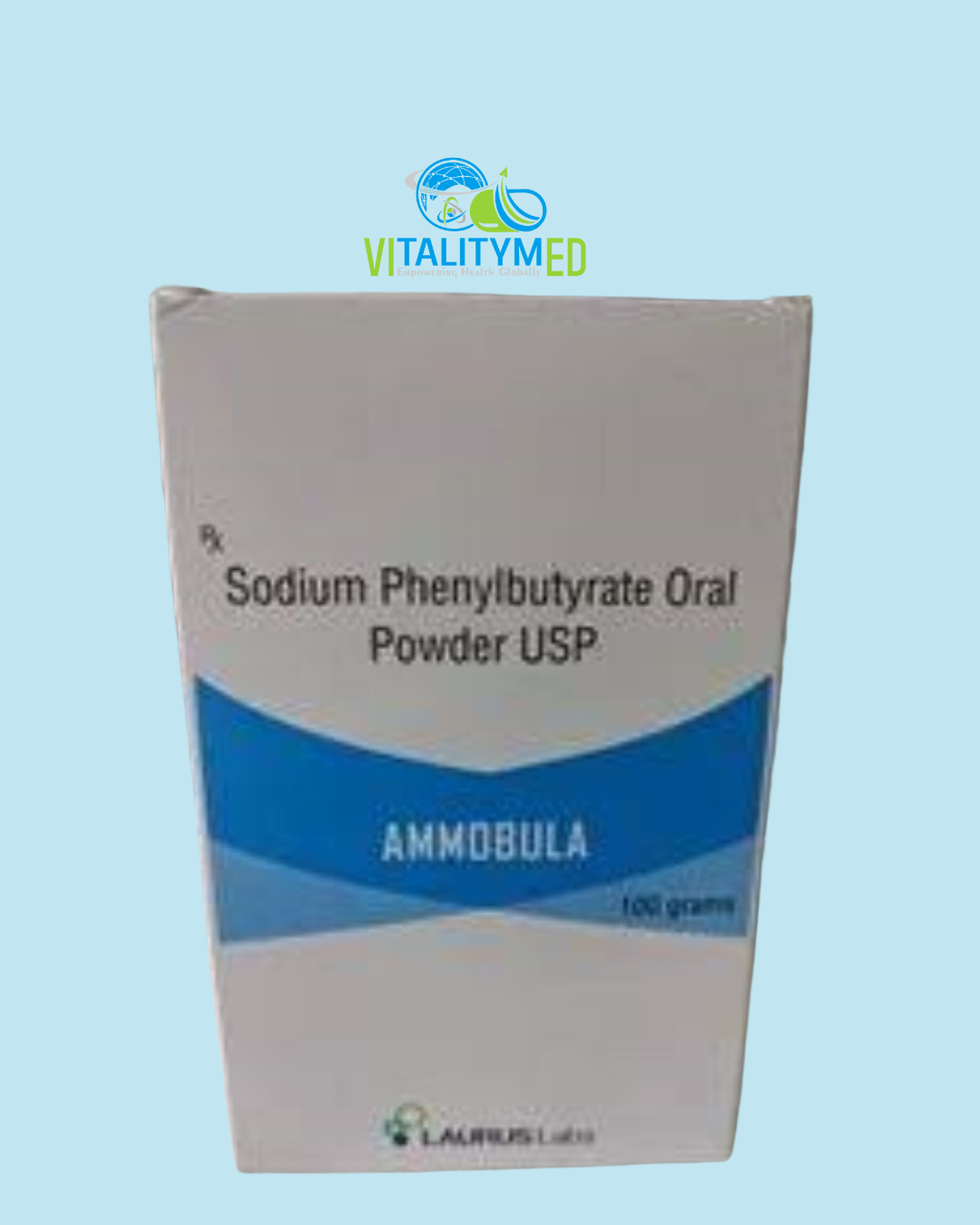Ammobula contains Sodium Phenylbutyrate, a medication used primarily in the treatment of urea cycle disorders (UCDs). These are rare genetic conditions in which the body is unable to properly eliminate nitrogen, leading to toxic buildup of ammonia in the blood. Sodium phenylbutyrate helps to manage and reduce high ammonia levels, which if left untreated, can lead to serious health complications.
Mechanism of Action:
Sodium phenylbutyrate works by providing an alternative pathway for the removal of excess nitrogen from the body:
-
In patients with urea cycle disorders, the body cannot efficiently convert ammonia into urea for excretion.
-
Sodium phenylbutyrate is metabolized into phenylacetate, which then combines with glutamine to form phenylacetylglutamine.
-
This compound is safely excreted by the kidneys in the urine, effectively helping to reduce the toxic ammonia levels in the blood.
Uses:
Ammobula is prescribed for:-
Chronic management of urea cycle disorders to prevent hyperammonemia (high blood ammonia)
-
Acute treatment of elevated ammonia levels, often as part of emergency protocols
-
Used alongside dietary protein restrictions and other supportive therapies in individuals with UCD
Adverse Effects:
While Ammobula is often essential for managing a life-threatening condition, some side effects may occur:-
Loss of appetite, nausea, vomiting, or indigestion
-
Body odor resembling that of stale sweat or urine, due to the metabolite phenylacetate
-
Menstrual irregularities or amenorrhea in some female patients
-
Mood changes, confusion, or fatigue, especially if ammonia levels are still elevated
-
Swelling, fluid retention, or increased blood pressure in some cases
-
-






